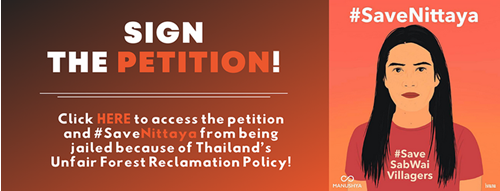The high vulnerability of South-East Asia to climate change is acknowledged in the ASEAN Action Plan on Joint Response to Climate Change[1]. The region has become ‘less ecologically diverse and more environmentally vulnerable’[2] as evidenced by the Global Climate Risk Index 2019 which rank Myanmar, Philippines, and Vietnam amongst the 10 most affected countries to climate change between 1998-2017[3]. The ASEAN judiciary has also recognized the common climate change challenges:
“Southeast Asia is highly vulnerable to climate change and is increasingly a significant contributor to global greenhouse gas emissions.”[4]
This dawning sense of urgency stands in contrast to the preference of most ASEAN countries for defining climate responses peripherally through policies, action plans, and existing laws rather than new and specific climate change laws. Two recent cases on land grabbing in Thailand and Cambodia illustrate how climate change claims are embedded within wider litigation strategies that seek enforcement of environmental laws.
Cambodia: Ecocide strategy
In October 2014, a plaint was filed by Cambodian farmers to the International Criminal Court (ICC) according to Article 15 of Rome Statute that could make jurisprudence.
Senior officials of the Kingdom of Cambodia are accused of alleged land grabbing activities that have the potential to amount to crimes against humanity under Article 7 Rome Statute. One of the farmers’ arguments is that changes in land surfaces resulting from land grabbing activities (e.g., land clearing for agriculture, or monoculture etc.) have major negative impacts on climate and peoples.
There are good reasons for the farmers to be optimistic since the ICC has issued in 2016 a new policy on case selection[5] under which it would prioritize crimes within its jurisdiction that are committed by means of or result in “the destruction of the environment, the illegal exploitation of natural resources, or the illegal dispossession of land”[6]. The ICC’s prosecutor, Ms. Fatou Bensouda, announced last February that she will make her decision on the preliminary examination into the plaint before June 15, 2021. If a prosecution order is issued, this case will represent a realization, at the criminal law level, that the protection of human rights and the preservation of the environment are symbiotic.
Thailand: Forest reclamation strategy
Thailand is a member to the Forest Carbon Partnership Facility which is an organization focused on reducing greenhouse gas emissions from forest degradation. The country’s forest reclamation policy aims to tackle forest destruction and trespassing on public land while intending to increase Thailand’s national forest area up to 40% of the total area of the country. Criticisms are made against this policy which would target and unjustly criminalize impoverished villagers and indigenous communities instead of wealthy property investors, on the mistaken assumption that encroaching activities would contribute to climate change.
In a recent dispute, the Government represented by the public prosecutor accused 14 villagers from Ban Sap Wai village of encroaching to Sai Thong National Park “causing degradation to environment and affecting climate”[7]. The Chaiyaphum Court of Appeal handed down unsuspended prison sentences and fines to the villagers which prompted criticisms from the media[8] and the UN Special Rapporteur on Human Rights and the Environment sent a communication to the Royal Thai Government, expressing their concerns about the conviction of the 14 villagers and about the misuse of the Forest Reclamation Policy and related NCPO Order 64 and 66/2014. Finally, and probably because of media interest and public support including a petition to support the villagers, the Supreme Court handed down suspended prison sentences to the defendants[9].

Reflections
While climate change is placed at the periphery rather than the center of both cases, it is raised by the farmers in the Cambodia dispute and by the government in the Thailand case. Thailand, unlike Cambodia, as a non-state party to the Rome Statute gives limited options to villagers other than to bring the dispute to the media and public attention to cast doubt on prosecuting them and on the severity of the sentences. The defense strategy effectively shifted the inquiry away from the alleged criminal activity which worked to the villagers’ favor since the Supreme Court suspended the imprisonment sentences handed down by the Court of Appeal.
The litigation strategy taken by the Cambodian farmers to prosecute officials before the ICC is particularly innovative. If such climate change litigation emerges, it is likely to support peripheral climate change claims embedded within wider grounds that seek enforcement of air pollution laws, waste management, amongst other laws. The ICC’s decision in this dispute raises the prospect that officials and business owners operating in countries that are party to the Rome Statute could face prosecution before that court for ecocide, away from the national courts over which they may exercise potential control, with the harm they have inflicted afforded parity with genocide and war crimes. The ICC’s prosecutor decision is therefore highly awaited.
Sources:
[1] ASEAN Action Plan on Joint Response to Climate Change of 2012
[2] Asian Development Bank Report (1997: 99).
[3] Available at https://germanwatch.org/sites/default/files/Global%20Climate%20Risk%20Index%202019_2.pdf
[4] Second ASEAN Chief Justices' Roundtable on Environment ASEAN’s Environmental Challenges and Legal Responses Editors Kala K. Mulqueeny Francesse Joy J. Cordon, 2013
[5] Pereira, R. After the ICC Office of the Prosecutor’s 2016 Policy Paper on Case Selection and Prioritisation: Towards an International Crime of Ecocide?. Crim Law Forum 31, 179–224 (2020).
[6] https://www.icc-cpi.int/Itemsdocuments/20160915_Otp-Policy_Case-Selection_Eng.Pdf accessed on May 10, 2021
[7] Court case no. 1437-1438/2562
[8] Suluk Lamubol “Thailand penalizes peasants, not real climate offenders” August 1, 2019, Asia Times, available at https://asiatimes.com/2019/08/thailand-penalizes-peasants-not-real-climate-offenders/ accessed on May 10, 2021
[9] court case no.